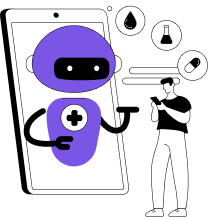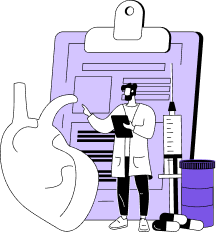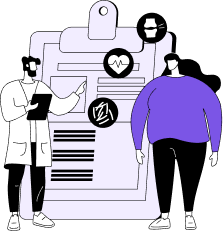- Generative AI in Healthcare: A Glimpse into the Market
- How is Generative AI for Healthcare Empowering the Industry?
- Personalized Treatment Plans
- Enhanced Medical Imaging Analysis
- Accelerated Drug Discovery
- Predictive Analytics for Disease Progression
- Virtual Clinical Trials Simulation
- Surgical Procedure Optimization
- Automation of Administrative Tasks
- Improved Patient Engagement and Education
- Applications of Generative AI in Healthcare
- Medical Image Reconstruction
- Drug Compound Generation
- Disease Progression Prediction
- Virtual Patient Simulation
- Automated Medical Coding
- Clinical Decision Support Systems
- Patient-Specific Treatment Planning
- Anomaly Detection in Patient Data
- Adaptive Therapy Optimization
- Patient Journey Prediction
- Exploring Real-World Generative AI in Healthcare Examples
- Navigating the Generative AI Challenges and Potential Solutions in the Healthcare Ecosystem
- Key Features for Developing Generative Applications in Healthcare
- Seamless Data Integration
- Advanced-Data Preprocessing
- Robust Security Architecture
- Adaptable Generative Model Framework
- Explainable AI Integration
- Continuous Learning Capability
- Domain Knowledge Integration
- Synthetic Data Generation Capabilities
- Interoperability with Existing Systems
- Scalability and Performance Optimization
- How to Develop a Generative AI Application for Your Business?
- Identify a Specific Use Case
- Data Collection and Preparation
- Model Development and Training
- Validation and Testing
- Integration with Healthcare Systems
- Monitor and Iterate
- Future of Generative AI in Healthcare
- AI-driven Epidemic Outbreak Prediction
- Expansion of Telemedicine
- Enhanced Genomic Medicine
- Advanced Mental Health Diagnostics
- Real-Time Health Crisis Management
- Decentralized Health Data Networks
- Empower Your Healthcare Business with Dedicated Generative AI Solutions by Appinventiv
- FAQs
Looking to understand the impact of Generative AI on healthcare? From improved diagnostics and treatment personalization to enhanced patient outcomes and system efficiency, this blog will deep dive into all the major Gen AI applications. The article will also uncover real-world examples of companies like PathAI and Zebra Medical Vision, showcasing the profound role of the technology in modernizing healthcare services.
Ever pondered about the game-changing impact of generative AI in healthcare? It’s truly remarkable how this advanced technology is transforming diagnostics, treatment personalization, and medical research, leading to better outcomes for patients and a more efficient healthcare system overall.
Generative AI is catalyzing a profound transformation ithin the healthcare industry, heralding a new era of innovation and efficiency. Through its ability to generate synthetic data, predict patient outcomes, and optimize treatment plans, generative AI revolutionizes clinical decision-making processes, leading to more personalized and effective healthcare interventions.
Moreover, its capacity to analyze vast amounts of medical data expedites diagnosis, facilitates drug discovery, and enables the development of predictive models for disease prevention.

As per the report of Precedence Research, the global market size for generative AI in healthcare reached $1.07 billion in 2022 and is projected to surpass $21.74 billion by 2032, with a CAGR of 35.14% over the forecast period from 2023 to 2032. The increasing market share can be attributed to the growing adoption of AI technologies for enhanced healthcare efficiency.
Let’s explore the various dimensions of generative AI for healthcare, including its wide-ranging applications, benefits, and real-world use cases.
Generative AI in Healthcare: A Glimpse into the Market
The healthcare industry usually faces challenges such as chronic disease management, escalating healthcare costs, regulatory compliance issues, and staffing shortages. Embracing technologies like Generative AI is crucial for addressing these issues and improving operational efficiency, patient outcomes, and cost-effectiveness.
Through advanced data analytics and machine learning, Generative AI can enhance diagnostic accuracy, personalize treatment plans, and optimize resource allocation across healthcare systems.
Research by the Deloitte Center for Health Solutions suggests that medical organizations are increasingly recognizing the benefits of Generative AI for Healthcare.
- Industry leaders are optimistic about the transformative impact of Generative AI, with 92% foreseeing enhanced operational efficiencies and 65% expecting accelerated decision-making processes.
- 82% have either implemented or are in the process of establishing specialized governance and oversight frameworks tailored specifically for Generative AI.
- 75% of prominent healthcare enterprises are actively exploring or planning to broaden the integration of Generative AI across their entire operations.
Partner with us to pioneer the future of healthcare with cutting-edge generative AI solutions
How is Generative AI for Healthcare Empowering the Industry?
In the dynamic healthcare landscape, generative AI holds immense potential to revolutionize patient care. Let’s explore its diverse benefits and uncover how it can transform medical outcomes.

Personalized Treatment Plans
By analyzing patient data, healthcare Generative AI tailors treatment plans to individual medical histories and needs, improving the effectiveness of interventions.
Also Read: Exploring the role of personalization in healthcare through technology
Enhanced Medical Imaging Analysis
Generative AI healthcare elevates the accuracy of medical imaging analysis, enabling early disease detection and precise medical diagnosis.
Accelerated Drug Discovery
Generative AI expedites drug discovery by simulating molecular structures and predicting their efficacy, facilitating the development of innovative therapeutics.
(Also read: The Potential of AI in Drug Discovery and its Impact on Healthcare)
Predictive Analytics for Disease Progression
Leveraging patient data, Gen AI in healthcare forecasts disease progression and identifies at-risk individuals, enabling proactive interventions for better outcomes.
[Also Read: Predictive Analytics In Healthcare – 10 Use Cases and Real-World Examples]
Virtual Clinical Trials Simulation
Generative Al for clinicians and healthcare conducts virtual clinical trials, reducing costs and time associated with traditional trials while upholding ethical standards.
Surgical Procedure Optimization
One of the popular generative AI healthcare use cases is that it assists surgeons in preoperative planning by generating detailed 3D models of patient anatomy and simulating surgical procedures, minimizing risks, and optimizing outcomes.
Automation of Administrative Tasks
One of the major benefits of Gen AI adoption in healthcare is automation. Generative AI for healthcare automates administrative duties such as scheduling, billing, and inventory management, allowing healthcare professionals to focus on patient care.
Improved Patient Engagement and Education
Through personalized health information and educational materials, Generative AI for healthcare enhances patient engagement, understanding of medical conditions and treatment plans.
Applications of Generative AI in Healthcare
The global utilization of generative AI for healthcare is becoming increasingly prevalent. Let’s explore how can generative AI be used in the field of healthcare, elevating patient care and outcomes!

Medical Image Reconstruction
One of the prominent Generative AI use cases in healthcare is medical image construction. Generative AI reconstructs medical images to enhance resolution and clarity, aiding in accurate diagnosis and treatment planning.
Drug Compound Generation
Generative AI creates novel drug compounds with desired properties, expediting the drug discovery process and broadening therapeutic options.
Disease Progression Prediction
Utilizing patient data, Generative AI forecasts disease progression, facilitating early intervention and personalized treatment strategies.
Virtual Patient Simulation
Virtual patient models are a prominent use case of Generative AI in healthcare, allowing for immersive medical training and simulation experiences that enable healthcare professionals to practice complex procedures in a risk-free environment.
Automated Medical Coding
Generative AI use cases in healthcare include automated medical coding tasks, accurately translating patient diagnoses and procedures into standardized codes for billing and documentation.
Clinical Decision Support Systems
Powered by Gen AI in healthcare, clinical decision support systems offer evidence-based recommendations to healthcare providers, improving diagnostic accuracy and treatment decisions.
Patient-Specific Treatment Planning
With the assistance of Gen AI in healthcare, businesses can develop patient-specific treatment plans by analyzing genetic, clinical, and lifestyle data and optimizing therapy options as per individual needs.
Anomaly Detection in Patient Data
Gen AI in healthcare has immense potential to identify anomalies in patient data, such as unusual patterns or outliers, alerting healthcare providers to providers to potential health issues or irregularities requiring attention.
Adaptive Therapy Optimization
Generative AI healthcare algorithms dynamically adjust treatment plans based on real-time patient data, optimizing therapy regimens for better outcomes and minimizing side effects.
Patient Journey Prediction
By analyzing historical patient data, the Generative AI adoption in healthcare can forecast the likely trajectory of an individual’s healthcare journey, enabling proactive interventions and personalized care plans to improve patient outcomes and satisfaction.
[Also Read: How is Artificial Intelligence Transforming the Healthcare Industry]
Exploring Real-World Generative AI in Healthcare Examples
Generative AI finds extensive use in healthcare, with prominent businesses harnessing its capabilities to improve operational methodologies and beyond. Let’s explore how can generative AI be used in the field of healthcare!
PathAI
PathAI, a biotechnology firm, utilizes Generative AI for biotech to enhance pathology services by automating and improving the accuracy of diagnostic processes. Their platform assists pathologists in identifying and diagnosing diseases from digital pathology images, ultimately leading to more accurate and efficient diagnoses.
Zebra Medical Vision
Zebra Medical Vision employs Generative AI to analyze medical imaging data, such as X-rays, CT scans, and MRIs, to assist radiologists in detecting and diagnosing various diseases. Their algorithms can detect abnormalities in imaging studies and prioritize cases requiring urgent attention, enhancing the efficiency of radiology workflows.
[Also Read: AI in Radiology – Benefits, Use Cases and Real-life Examples]
NVIDIA
NVIDIA has introduced Generative AI microservices aimed at advancing drug discovery, medical technology (MedTech), and digital health. These microservices, available through the NVIDIA AI Enterprise 5.0 software platform, offer a wide range of capabilities, including advanced imaging, natural language processing, and digital biology generation.
Pfizer
Pfizer, a top pharmaceutical firm, employs generative AI via its ‘Charlie’ platform to transform pharma marketing by enhancing content creation and legal reviews. Charlie focuses on digital media, emails, and medical articles, using AI for personalization and insights into customer behavior. Collaborating with Publicis Groupe ensures data privacy and efficiency in medical and legal reviews.
Navigating the Generative AI Challenges and Potential Solutions in the Healthcare Ecosystem
While we have explored the major advantages and applications of Generative AI in the healthcare sector, it’s crucial to also acknowledge that this transformative technology is not free of its challenges. As reported by prestigious media organizations such as The Hill, OpenAI’s ChatGPT incorrectly diagnosed more than 8 in 10 pediatric case studies.
Also, as reported by Stat News last year, at the testing of GPT-4 as a diagnostic assistant, physicians at Beth Israel Deaconess Medical Center in Boston noted that the model identified the incorrect diagnosis as its top suggestion two-thirds of the time.
Let’s explore some other challenges that this disruptive technology poses along with potential solutions that healthcare organizations can leverage to drive the Generative AI impact in their business.
Challenge
Generative AI models in healthcare are often complex and opaque, making it difficult to understand how they reach their conclusions. This lack of transparency hinders trust among healthcare professionals and patients.
Solution
Develop methods for explaining AI-generated insights, such as creating visualizations or providing step-by-step reasoning. Businesses can prioritize incorporating interpretable AI techniques into model design to enhance transparency. Also, establish guidelines for explaining AI decisions to healthcare professionals and patients.
Challenge
While AI can assist with healthcare tasks, ultimate responsibility for patient care and decision-making lies with healthcare professionals, necessitating physician oversight.
Solution
It is always helpful to establish clear guidelines for healthcare professionals’ roles and responsibilities in using AI technologies. Integrate AI tools into existing clinical workflows to facilitate collaboration and oversight. Provide training and education to healthcare professionals on the appropriate use of AI in patient care, emphasizing the importance of critical thinking and validation. Businesses can ensure these guidelines are implemented effectively within their healthcare systems.
Challenge
Healthcare regulations pose significant challenges for the adoption of generative AI technologies, particularly regarding data privacy, safety, and efficacy.
Solution
Establish clear guidelines and standards for the use of Generative AI in your healthcare business. This implementation of Generative AI necessitates incorporating robust data privacy measures and ensuring stringent adherence to existing regulations. Additionally, fostering a deep understanding of Generative AI and healthcare within your team will help in aligning these advanced technologies with patient safety and confidentiality standards.
Challenge
As stated above, Generative AI models have demonstrated significant diagnostic errors, particularly in pediatric diseases, raising concerns about patient safety and outcomes.
Solution
Continuously improve AI models through rigorous testing and validation processes, focusing on specific healthcare domains and populations. Businesses can invest in extensive training datasets and collaborate with healthcare professionals to identify and address potential biases or limitations in AI algorithms. Implement ensemble or hybrid approaches combining AI with expert knowledge to enhance diagnostic accuracy.
Challenge
Generative AI struggles with medical administrative tasks, such as summarizing patient health records, leading to suboptimal performance in healthcare workflows.
Solution
Develop specialized AI models tailored to healthcare administrative tasks, leveraging techniques such as natural language processing and knowledge representation. Invest in data preprocessing and feature engineering to enhance model performance on healthcare-specific datasets. Collaborate with healthcare organizations to identify and prioritize tasks that can benefit from AI automation.
Challenge
Healthcare stakeholders express concerns about the reliability of AI-generated recommendations, including the risk of misdiagnoses or inappropriate treatments.
Solution
Implement robust validation and verification processes to assess the reliability and safety of AI-generated recommendations. Provide healthcare professionals with tools for evaluating the confidence and accuracy of AI outputs, such as probabilistic models or uncertainty estimates.
Key Features for Developing Generative Applications in Healthcare
Here are some significant features of Generative AI that the healthcare industry leverages to enhance its methodologies. Let’s comprehend!

Seamless Data Integration
The application should effortlessly pull data from various healthcare sources, such as EHRs and imaging databases, for model training and generation tasks.
Advanced-Data Preprocessing
Built-in functionalities for data cleaning, anonymization (while maintaining usability), and potentially data augmentation (following privacy regulations) are essential for preparing high-quality training data.
Robust Security Architecture
The application must prioritize robust security measures to safeguard sensitive patient information throughout its lifecycle, including storage, processing, and generation of outputs.
Adaptable Generative Model Framework
The ability to choose and train a suitable generative AI model architecture (e.g., customizing a GAN or VAE) for the specific healthcare task is crucial.
Explainable AI Integration
Features that help explain the decision-making process behind the generated outputs are valuable, particularly for applications with high stakes or regulatory requirements.
[Also Read: How Explainable AI can Unlock Accountable and Ethical Development of Artificial Intelligence]
Continuous Learning Capability
The application should be equipped to learn and adapt from new data over time, ensuring ongoing accuracy and effectiveness in the dynamic healthcare environment.
Domain Knowledge Integration
Mechanisms to incorporate healthcare professionals’ expertise into the model development process can significantly improve the relevance and accuracy of generated outputs.
Synthetic Data Generation Capabilities
The ability to generate synthetic patient data that adheres to privacy regulations is valuable for research and training purposes, protecting real patient data.
[Also Read: Preventing AI Model Collapse: Addressing the Inherent Risk of Synthetic Datasets]
Interoperability with Existing Systems
Seamless integration with existing healthcare workflows and systems used by hospitals and clinics is crucial for practical application.
Scalability and Performance Optimization
The application needs to be scalable to handle large healthcare datasets and institutions’ growing demands, ensuring efficient performance.
How to Develop a Generative AI Application for Your Business?
Building a Generative AI application for the healthcare business requires careful planning and expertise. Here’s a breakdown of the key steps:

Identify a Specific Use Case
Generative AI has diverse applications in healthcare. Start by pinpointing a specific area you want to address. Examples include drug discovery, personalized medicine, medical imaging analysis, or generating synthetic patient data for research.
Data Collection and Preparation
Generative AI models thrive on high-quality data. Gather relevant data for your chosen use case. Ensure the data is anonymized and adheres to healthcare data privacy regulations and compliances.
Model Development and Training
Choose a suitable generative AI model architecture for your task. Train the model on the prepared data, fine-tuning it for the specific healthcare application. This might involve collaboration with data scientists and machine learning engineers.
Validation and Testing
Rigorously evaluate the trained model’s performance. Use separate datasets not used in training to assess accuracy, reliability, and generalizability.
Integration with Healthcare Systems
Integrate the validated AI model seamlessly with existing healthcare systems used by hospitals or clinics. This might involve ensuring compatibility with Electronic Health Records (EHR) and other relevant tools.
Monitor and Iterate
Monitor the performance of the integrated Generative AI application continuously and keep improving based on the feedback received from users.
Future of Generative AI in Healthcare
Generative AI is transforming healthcare by creating new opportunities for better patient care. This technology can generate realistic simulations and data that help in various medical fields. Here’s how generative AI is expected to shape the future of healthcare:
AI-driven Epidemic Outbreak Prediction
Generative AI models could simulate and predict the spread of infectious diseases, helping public health officials plan interventions and allocate resources more effectively.
Expansion of Telemedicine
AI could enable more sophisticated telemedicine platforms where generative models assist in diagnosing and providing initial patient care remotely, making healthcare more accessible, especially in underserved areas.
Enhanced Genomic Medicine
AI’s ability to generate and analyze vast genomic sequences will advance personalized medicine, allowing for highly tailored therapies based on an individual’s genetic makeup.
Advanced Mental Health Diagnostics
Future applications may include generative AI tools that analyze speech and facial expressions to diagnose mental health conditions, providing a non-invasive method to detect and monitor subtle and gradual changes over time.
Real-Time Health Crisis Management
Future advancements may include generative AI systems capable of managing health crises in real time. These systems could analyze live health data streams to predict and mitigate health emergencies before they escalate, providing instant guidance to both healthcare providers and patients.
Decentralized Health Data Networks
Generative Al could lead the development of decentralized health data networks, where patient data is stored securely on blockchain platforms for healthcare. This would enhance data privacy and accessibility, allowing for real-time data analysis across various locations to inform more accurate and immediate medical responses.
Empower Your Healthcare Business with Dedicated Generative AI Solutions by Appinventiv
Appinventiv is a healthcare software development company that enables startups and enterprises to build comprehensive generative AI solutions that address the complexities of the industry. By combining cutting-edge technology with extensive industry knowledge, Appinventiv develops customized solutions that streamline operations, enrich decision-making processes, and ultimately enhance patient results.
As a dedicated generative AI services company, our experts allow businesses to efficiently manage resources and extract actionable insights from large datasets. This ability allows for more informed decision-making and more effective health management strategies.
From predictive analytics to virtual assistants, Appinventiv’s healthcare AI consulting services can reshape the landscape of healthcare delivery, promoting a more effective and patient-centric ecosystem for both providers and recipients of care. Staying ahead with the latest AI trends in healthcare, we continuously innovate to meet the dynamic needs of the sector.
Get in touch to develop innovative apps infused with Generative AI solutions that enhance engagement and elevate user experiences.
FAQs
Q. How can generative AI be used in healthcare?
A. Generative AI and healthcare are intersecting to pioneer new frontiers in personalized treatment and medical innovation. It can be utilized to generate synthetic medical images for training AI algorithms, augmenting limited datasets and improving the accuracy of diagnostic models. Moreover, it can facilitate drug discovery by generating novel molecular structures and predicting their properties. Furthermore, generative AI can assist medical research by simulating disease progression and predicting patient outcomes.
Q. What are the key components of Generative AI that businesses leverage in healthcare applications?
A. In healthcare applications, businesses leverage key components of Generative AI such as Generative Adversarial Networks (GANs), Variational Autoencoders (VAEs), and transformers to generate synthetic data, enhance medical imaging, and facilitate drug discovery and molecular design. This integration of Generative AI and healthcare is transforming patient care by enabling more accurate diagnostics and personalized treatment options.
Q. What impact does Generative AI have on diagnostic accuracy in healthcare?
A. Generative AI in healthcare can significantly impact diagnostic accuracy by enhancing the interpretation of medical images, improving data synthesis for rare diseases, and aiding in the identification of subtle patterns or anomalies.
Q. What are the current AI trends in healthcare?
A. The healthcare industry is experiencing rapid transformations due to advancements in AI technology. Here are some key AI trends currently shaping healthcare:
Predictive Analytics: Leveraging AI to predict patient outcomes, optimize treatment plans, and reduce hospital readmissions.
Personalized Medicine: AI algorithms analyze vast amounts of data to tailor treatments to individual patients, enhancing effectiveness and efficiency.
Virtual Health Assistants: AI-powered virtual assistants provide 24/7 patient support and health monitoring, improving patient engagement and compliance.
Robotics in Surgery: Robotic systems enhance the precision and speed of surgical procedures, reducing recovery times and improving outcomes.
Medical Imaging: Advanced AI techniques improve the accuracy and speed of image analysis, aiding in quicker and more accurate diagnoses.


- In just 2 mins you will get a response
- Your idea is 100% protected by our Non Disclosure Agreement.
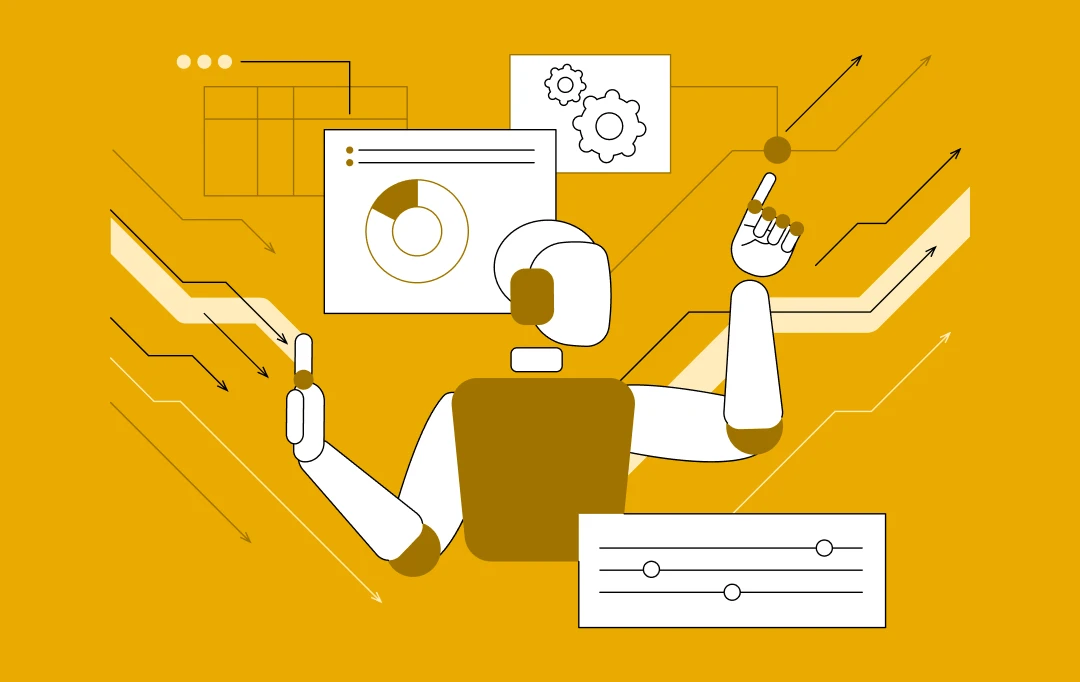
How to Integrate AI with EHR/EMR Systems for Streamlined Healthcare Operations
Key takeaways: Not adopting AI in EHR/EMR today risks falling behind. AI streamlines EHR workflows, cutting clinical and admin delays. Real-world hospitals are already seeing faster, smarter care with AI. Seamless AI integration needs system checks, data prep, and training. AI in EHR tackles real challenges like bias, cost, and compliance. Custom AI integration costs…
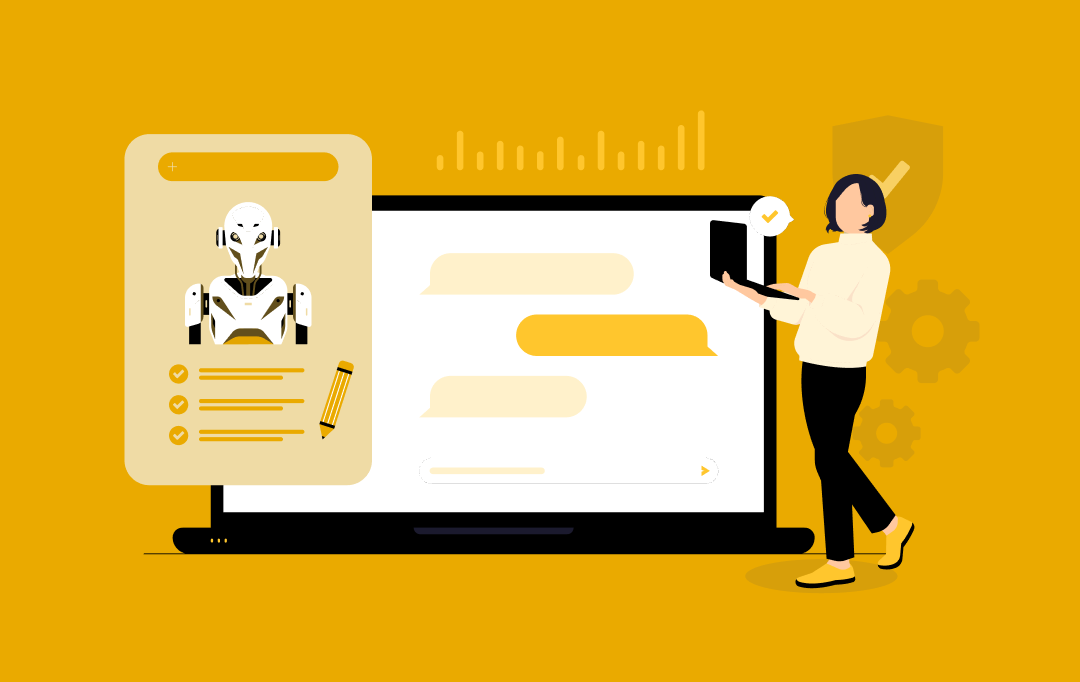
AI Agent-Driven UIs: Replacing App Menus and Buttons
Key takeaways: Challenge: Static menus and buttons also become outdated because people are frustrated by limited, multi-stage navigation. Solution: The AI Agent interacts with the user through a friendly UI that does not require cludgy menus but conversational and context-sensitive navigation. The Way AI Agents Work: AI agents establish a basis of natural language understanding,…
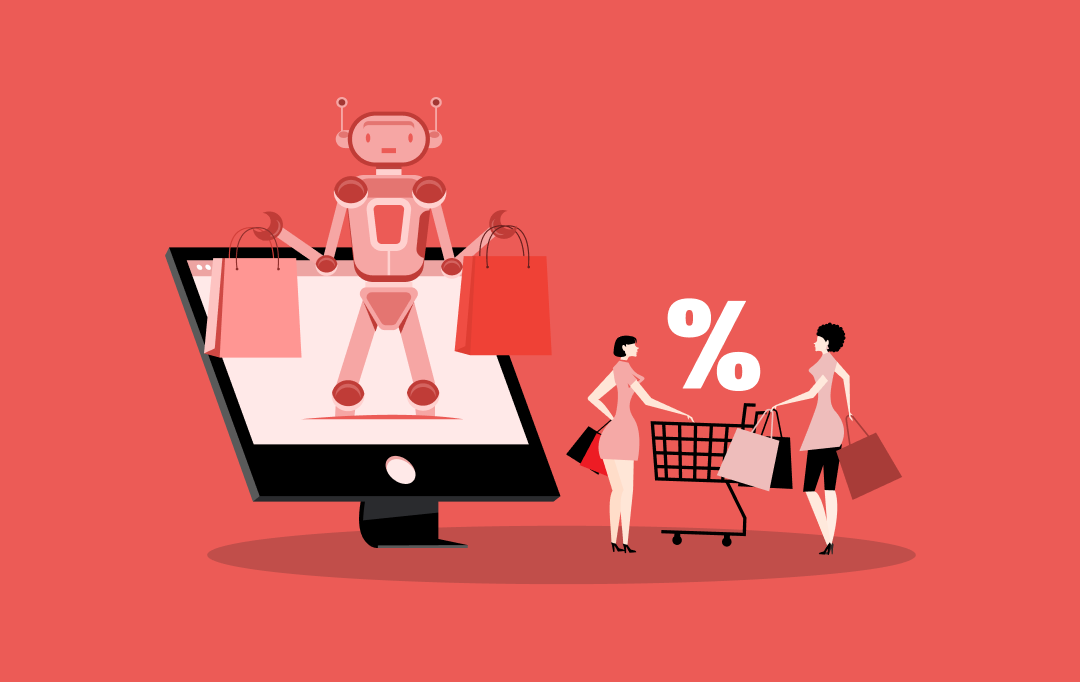
10 Use Cases and Benefits of How AI Agents Are Revolutionizing the Retail Industry
Key takeaways: AI agents in the retail industry are revolutionizing businesses by enhancing customer experience and streamlining operations. From personalized recommendations to predictive analytics, AI offers tangible benefits like increased conversions and reduced costs. AI adoption can lead to scalable growth and a competitive edge in the retail industry. Retailers must consider data strategies, talent…







